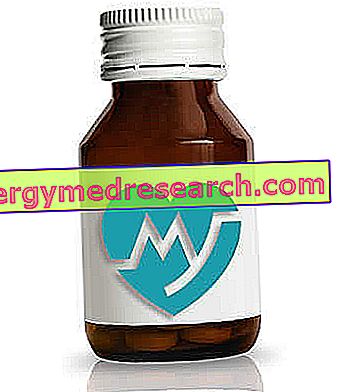Generality
Phosphatidylserine is a structural phospholipid of biological membranes.
Isolated for the first time in the central nervous system, it was initially called cephalin.

Composed of two fatty acids linked to a glycerophosphate molecule, phosphatidylserine has carved out a highly respected place in the clinical and nutritional fields, representing a molecule capable of supporting the structure and function of the central nervous system.
Indications
Why is phosphatidylserine used? What is it for?
Phosphatidylserine is used in clinical and integrative settings mainly due to its neurotrophic activities and to support mental ability .
More precisely phosphatidylserine would have been useful in the management:
- Alzheimer's disease ;
- Age-related memory disorders ;
- Of senile dementia .
Still to be characterized would instead be the alleged ability of phosphatidylserine to counteract the stress induced by intense physical exercise and the high levels of cortisol that ensue, responsible for a decline in both the performance and the general health of the athlete.
Benefits and Property
What benefit has phosphatidylserine shown during the studies?
Most of the results related to the clinical efficacy of phosphatidylserine derive mainly from experimental studies.
However, in recent works the continued use of phosphatidylserine supplements would have been useful in improving the cognitive and mnemonic abilities of elderly subjects.
This activity would seem related to the phosphatidylserine capacity of:
- stimulate the secretion of neurotransmitters;
- exercise a direct protective action against the cell membranes of neurons.
In a very recent study conducted on 140 subjects suffering from Alzheimer's disease, the use of 200 mg of phosphatidylserine per day would have, in a period of 3 months, statistically significantly improved mental abilities.
Some works, however still scarce in terms of number and statistical range, would also demonstrate the capacity of phosphatidylserine - taken this time at dosages of between 400 and 800 mg - to counteract the increase in blood cortisol concentrations induced by intense physical exercise. In this regard it is possible to read this in-depth analysis, bearing in mind that the author takes an excessively optimistic approach in listing the alleged (and yet to be proven) anti-catabolic properties of phosphatidylserine.
Doses and method of use
How to use phosphatidylserine
The most commonly used phosphatidylserine dosages in the various studies are 100 mg 3 times a day, preferably taken with meals.
Currently, most of the phosphatidylserine present in the supplements is extracted from soy using enzymatic conversion processes that allow the conversion of phosphatidylcholine into phosphatidylserine.
Side effects
The use of phosphatidylserine is generally safe and well tolerated.
Occasionally, however, the appearance of gastrointestinal side effects has been observed, such as nausea, abdominal cramps and dyspepsia.
Contraindications
When should phosphatidylserine not be used?
The use of phosphatidylserine is contraindicated in case of hypersensitivity to the active ingredient or to one of the elements present in the preparation.
Pharmacological Interactions
Which drugs or foods can modify the effect of phosphatidylserine?
At the moment active ingredients or foods capable of altering the normal activity of phosphatidylserine are not known.
Precautions for use
What do you need to know before taking phosphatidylserine?
Given the lack of studies concerning the long-term safety profile of phosphatidylserine, it is not recommended for use in children, during pregnancy and in the subsequent period of breastfeeding.
Particular caution and strict medical supervision in the use of phosphatidylserine would also be necessary in patients with antibody-antiphospholipid syndrome.



